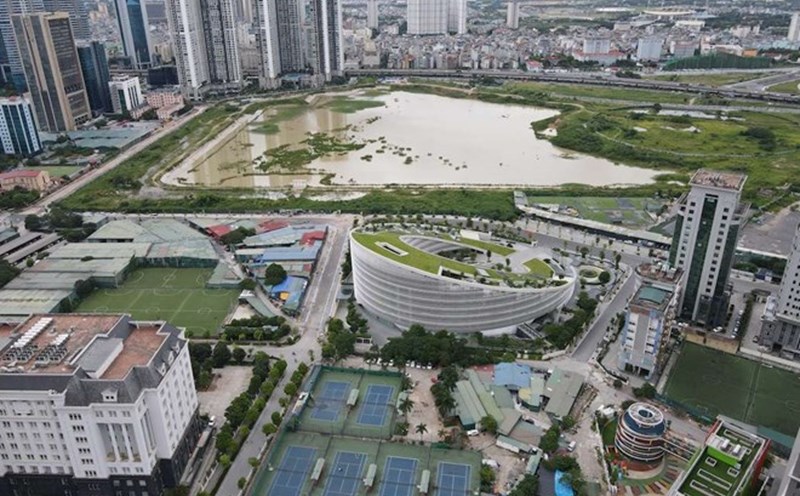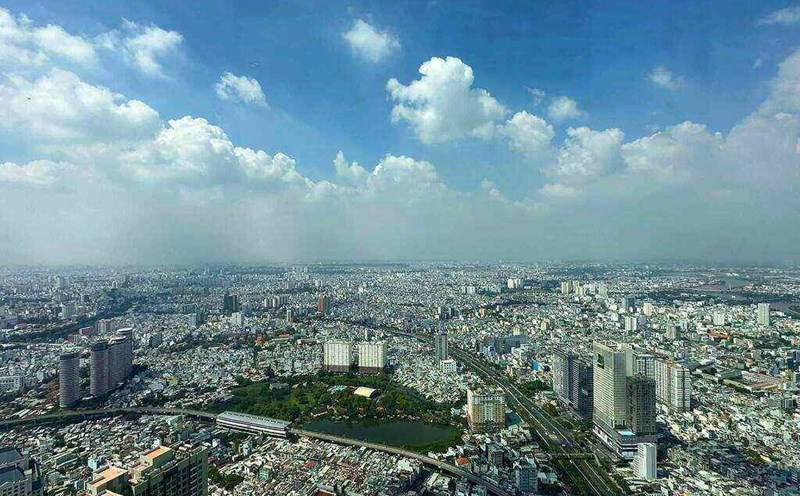The Ho Chi Minh City People's Committee has just sent a report to the Ministry of Construction on the real estate and housing market situation in the third quarter.
According to the report, Ho Chi Minh City has completely removed obstacles for 8 projects, including: Song Viet Complex of Quoc Loc Phat Joint Stock Company; social housing area of VTHouse Joint Stock Company and Tan Giao Joint Stock Company; project of Suntory Pepsico Vietnam Beverage Company Limited; Metro Star apartment and commercial complex of Metro Star Investment Joint Stock Company.
In addition, there is the Tan Thang Sports and Residential Complex project (commercial name is Celadon City) of Gamuda Land Joint Stock Company; a land area of over 11,000m2 in Hoc Mon district of Western Saigon Joint Stock Company; the Song Da - Thang Long high-rise residential project of Hung Thinh Incons Joint Stock Company; and the Binh Thanh district education area of Tri Tue Company.
The Ho Chi Minh City People's Committee said it has also directed to continue reviewing inappropriate content, overlaps, and conflicts between related regulations to remove common obstacles for projects to speed up investment and construction progress; handle shortcomings, perfect policies and mechanisms to clear bottlenecks in investment activities in the area.
Previously, according to the Ministry of Construction, by mid-2023, there would be about 1,200 real estate and commercial housing projects nationwide that were stuck, mainly due to legal problems. Of these, Ho Chi Minh City had 148 projects with legal problems that could not be implemented or could not carry out investment and construction procedures.
Currently, in addition to resolving legal issues for the project, according to statistics from the Ho Chi Minh City Real Estate Association (HoREA), there are many housing projects in the city that are stuck in the land valuation stage to calculate land use fees. Up to now, after many years of petitioning to resolve difficulties, projects stuck in relation to land valuation are still "frozen".
Recently, the Department of Natural Resources and Environment of Ho Chi Minh City sent a document to the Department of Finance of Ho Chi Minh City regarding the list of 22 projects expected to be submitted to the City Land Valuation Council for appraisal in the fourth quarter of 2024.
Of the 22 projects proposed to be appraised for land use fee calculation, only a few are on the list that HoREA has proposed to remove over the years. There are many projects that have not paid land use fee for more than 20 years but are not included in this list.
The investor of a commercial housing project in District 7, Ho Chi Minh City said that for the past 4 years, the investor has been running from the district to the department, then to the city to "beg" to pay land use fees as a basis for applying for a construction permit, implementing the project, and having cash flow to support the business apparatus, but all have been unsuccessful.
Fulfilling financial obligations on land is an important basis for state agencies to issue certificates of land use rights and ownership of houses and structures attached to land to home buyers and is the basis for issuing project construction permits. But stuck at this stage, the project had to stand still, and the project investor was frustrated.
According to Mr. Le Hoang Chau, Chairman of HoREA, land valuation has many shortcomings, leading not only to Ho Chi Minh City, but also hundreds of real estate and commercial housing projects across the country being unable to fulfill their financial obligations to the State, unable to issue red books to customers. Not being able to determine land prices leads to late payment of land use and land rent fees and budget losses. This is not the fault of the investor, but their brand reputation is affected. Therefore, Ho Chi Minh City needs to speed up the land valuation process.











